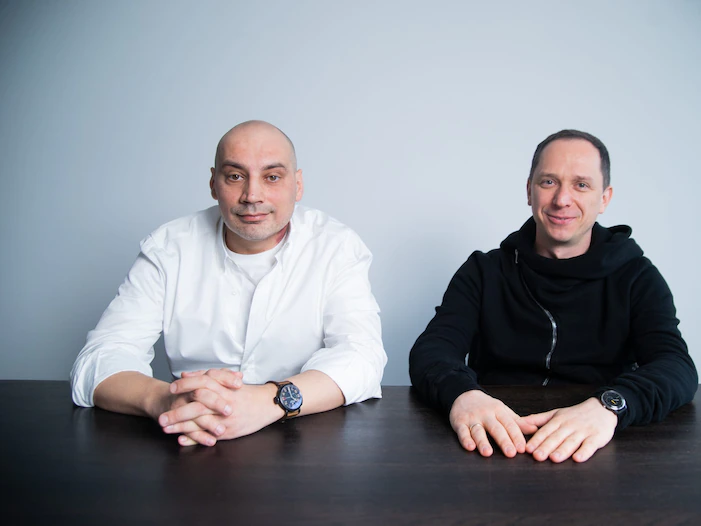
Buyk
- Buyk launched its rapid-grocery-delivery service in New York City in August.
- CM Ventures co-led a $46 million funding round of Buyk after vetting 100 rapid-delivery startups.
- The firm is betting on Buyk’s founders, who scaled Russia’s largest grocery-delivery service.
In the US, the biggest battle among the rapid-grocery-delivery players is playing out in New York City. Gorillas, Jokr, Buyk, 1520, and Fridge No More promise cheap delivery of grocery and convenience-store staples in less than 30 minutes, some in as little as 10 minutes. These companies are fighting for customers and venture-capital dollars. Food- and grocery-delivery startups have received $21.1 billion from investors this year, according to the latest data from CB Insights.
While it’s too early to know who will win the New York market, one global venture-capital firm said it was betting on Buyk after researching more than 100 players worldwide, including Gopuff, DoorDash, Flink, Getir, and Zapp.
CM Ventures vetted these startups by studying publicly available financials, reading pitch decks, and conducting interviews with 30 companies.
For the most part, the business models of the emerging rapid-delivery players are the same. They store 2,000 to 3,000 items in dark stores or microfulfillment warehouses. Gig or full-time workers deliver them directly to customers.
But Nick Dyachkov, a CM Ventures managing partner, saw something different in Buyk, he told Insider. CM Ventures, which is headquartered in Moscow, coled a $46 million raise by Buyk, pronounced “bike,” in June.
In an interview with Insider, Dyachkov outlined what set Buyk apart from its competitors.

CM Ventures
A proven track record
Upstarts such as Gorillas, the SoftBank-backed Jokr, Flink, and Zapp are rising stars that have amassed hundreds of millions in funding, CM Ventures said in its dark-store research report. While these players are growing rapidly, CM Ventures said they were not as established as the “big four” global players: Delivery Hero’s Dmart dark stores, Yandex, Getir, and Samokat. All four operate more than 2,250 dark stores, compared with 250 to 300 locations operated by the emerging players, according to the CM Ventures report.
While Buyk launched just this year, its cofounders have a proven track record in the rapid-delivery space, Dyachkov said.
Slava Bocharov and Rodion Shishkov founded the delivery service Samokat, Russia’s largest grocery-delivery service by orders, in 2018 and sold it last year to the internet firm Mail.ru. Bocharov also helped scale Magnit, a large retail chain in Russia. Buyk is a separate company from Samokat, which is headquartered in St. Petersburg, Russia. Buyk is headquartered in New York City.
“Managing a retail network at a large scale is something that requires very specific expertise,” Dyachkov said. “We are 100% sure in the founders of Samokat that they can scale Buyk to a very large scale.”
Laser-focused tech stack
Dyachkov said CM Ventures was also impressed with Buyk’s proprietary tech stack.
Every process in the dark-store operation is built from scratch – from how you manage inventory to ensuring deliveries are made in a timely manner.
Dyachkov said Buyk used machine learning to stock each dark store with stock-keeping units, or grocery items that cater to the surrounding neighborhood’s needs. That means one dark store might be stocked with items different from those at another store a few miles away.
“You need to develop everything by yourself in-house because every process is so new,” Dyachkov said.

CM Ventures
Private labels like Trader Joe’s
In Russia, Samokat sells a line of high-quality private-label goods that are popular among shoppers.
Products include a variety of goods – alternative milk, desserts, and cosmetics. CM Ventures said the products’ pricing was reasonable but not necessarily cheaper than their brand counterparts.
Buyk plans to follow that same playbook in the US. CM Ventures said Buyk’s private-label line would have the same appeal as Trader Joe’s.
Buyk is talking to local producers and private-label goods will be rolled out in the next few months, Bocharov confirmed in an email.
“They have totally reshaped this concept because they are creating private labels that are really resonating with the customer,” Dyachkov said.
CM Ventures said in its report that it foresaw “a decade-long growth story for many players” in the rapid-delivery space. But eventually, at least two large players will emerge as the dominant players in dense urban markets.
“We think this could be one of the most transformational things in grocery retail in the coming decade,” Dyachkov said.
For its part, Buyk is already seeing early success, Bocharov said: “The number of daily orders is steadily rising since our launch. We are starting to see more customers with three or more orders per month, which demonstrates that New Yorkers are catching on to the idea of ultrafast grocery delivery.”
Credit: Source link




















